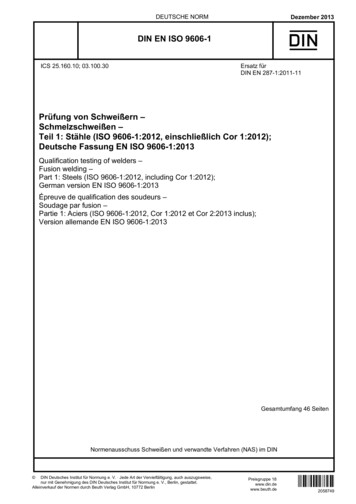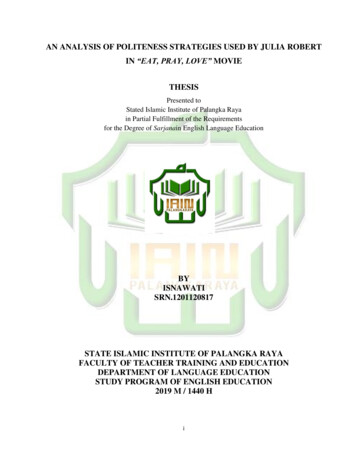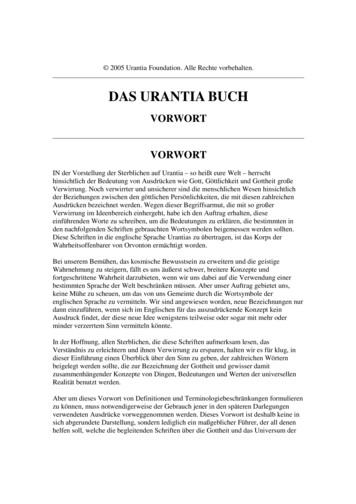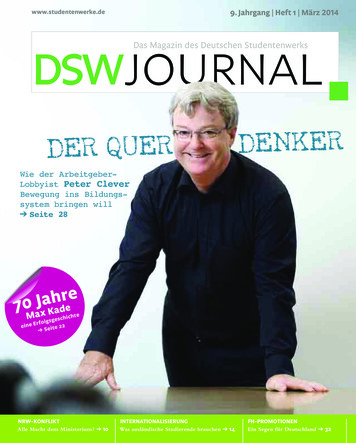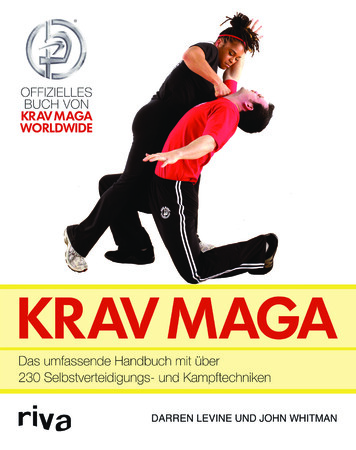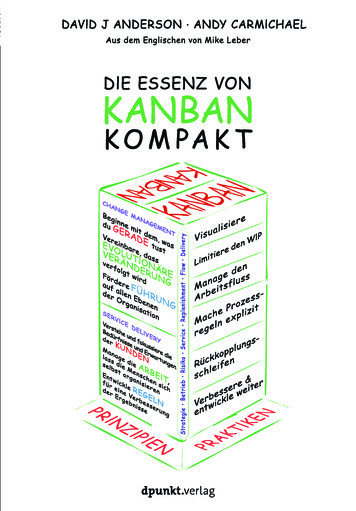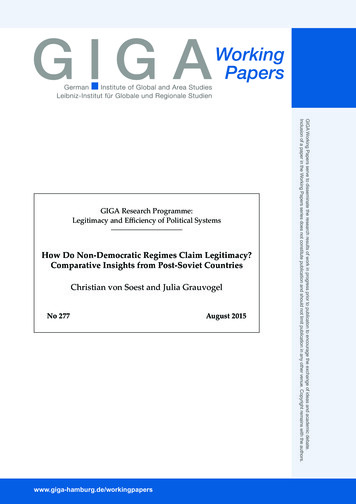
Transcription
How Do Non-Democratic Regimes Claim Legitimacy?Comparative Insights from Post-Soviet CountriesChristian von Soest and Julia GrauvogelNo 277www.giga-hamburg.de/workingpapersAugust 2015GIGA Working Papers serve to disseminate the research results of work in progress prior to publicaton to encourage the exchange of ideas and academic debate.Inclusion of a paper in the Working Papers series does not constitute publication and should not limit publication in any other venue. Copyright remains with the authors.GIGA Research Programme:Legitimacy and Efficiency of Political Systems
GIGA Working Papers277/2015Edited by theGIGA German Institute of Global and Area StudiesLeibniz‐Institut für Globale und Regionale StudienThe GIGA Working Papers series serves to disseminate the research results of work inprogress prior to publication in order to encourage the exchange of ideas and academicdebate. An objective of the series is to get the findings out quickly, even if the presenta‐tions are less than fully polished. Inclusion of a paper in the GIGA Working Papers seriesdoes not constitute publication and should not limit publication in any other venue. Copy‐right remains with the authors.GIGA Research Programme “Legitimacy and Efficiency of Political Systems”Copyright for this issue: Christian von Soest, Julia GrauvogelWP Coordination and English‐language Copyediting: Melissa NelsonEditorial Assistance and Production: Kerstin LabusgaAll GIGA Working Papers are available online and free of charge on the website www.giga‐hamburg.de/workingpapers .For any requests please contact: workingpapers@giga‐hamburg.de The GIGA German Institute of Global and Area Studies cannot be held responsible forerrors or any consequences arising from the use of information contained in this WorkingPaper; the views and opinions expressed are solely those of the author or authors and donot necessarily reflect those of the Institute.GIGA German Institute of Global and Area StudiesLeibniz‐Institut für Globale und Regionale StudienNeuer Jungfernstieg 2120354 HamburgGermany info@giga‐hamburg.de www.giga‐hamburg.de GIGA Working Papers277/2015
How Do Non‐Democratic Regimes Claim Legitimacy?Comparative Insights from Post‐Soviet CountriesAbstractThe analysis using the new Regime Legitimation Expert Survey (RLES) demonstrates thatnon‐democratic rulers in post‐Soviet countries use specific combinations of legitimatingclaims to stay in power. Most notably, rulers claim to be the guardians of citizens’ socio‐economic well‐being. Second, despite recurrent infringements on political and civil rights,they maintain that their power is rule‐based and embodies the will of the people, as theyhave been given popular electoral mandates. Third, they couple these elements with input‐based legitimation strategies that focus on nationalist ideologies, the personal capabilitiesand charismatic aura of the rulers, and the regime’s foundational myth. Overall, the reli‐ance on these input‐based strategies is lower in the western post‐Soviet Eurasian countriesand very pronounced among the authoritarian rulers of Central Asia.Keywords: authoritarian regimes, claims to legitimacy, adaptation, expert survey, Post‐Soviet countriesDr. Christian von Soestis the head of GIGA Research Programme 2: Violence and Security and the scientific coor‐dinator of the research project “Ineffective Sanctions? External Sanctions and the Persis‐tence of Autocratic Regimes,” which is funded by the Fritz Thyssen Foundation. christian.vonsoest@giga‐hamburg.de www.giga‐hamburg.de/en/team/soest Julia Grauvogel, MAis a research fellow at the GIGA Institute of African Affairs and a doctoral student at theUniversity of Hamburg. julia.grauvogel@giga‐hamburg.de www.giga‐hamburg.de/en/team/grauvogel 277/2015GIGA Working Papers
How Do Non‐Democratic Regimes Claim Legitimacy?Comparative Insights from Post‐Soviet CountriesChristian von Soest and Julia GrauvogelArticle Outline1 Introduction2 Claiming Legitimacy in Authoritarian Regimes3 Assessing Claims to Legitimacy: The Regime Legitimation Expert Survey4 Legitimation Strategies of Post‐Soviet Regimes5 ConclusionBibliography1 IntroductionIn contrast to hopes that the post‐Soviet countries would liberalise politically as part of “de‐mocracy’s third wave” (Huntington, 1991), various regimes in the region have regressed intoauthoritarianism, while others have remained in a hybrid state between democracy and au‐thoritarian rule or have never undergone any form of democratisation.1 Over the course ofchanges in rulers, socio‐economic crises, and even so‐called colour revolutions, non‐1Author names in reverse alphabetical order; both authors contributed equally to the article. The research is aproduct of the research project “Ineffective Sanctions? External Sanctions and the Persistence of AutocraticRegimes,” funded by the Fritz Thyssen Foundation (grant number: 10.11.1.155). We would like to thank allparticipants of the online survey for their generous willingness to share their insights. We also thank MartinBrusis, Valerie Bunce, Adele Del Sordi, and Johannes Gerschewski for their helpful comments. A revised ver‐sion of this article with the title “Comparing Legitimation Stategies in Post‐Soviet Countries” will be pub‐lished in Brusis, M., J. Ahrens and M. Schulze Wessel (eds) Politics and Legitimacy in Post‐Soviet Eurasia (Lon‐don: Palgrave Macmillan) (forthcoming).GIGA Working Papers277/2015
Christian von Soest and Julia Grauvogel: How Do Non‐Democratic Regimes Claim Legitimacy?5democratic arrangements of political rule have emerged and persisted – a phenomenon byno means limited to the post‐Soviet space (Schedler, 2006; Levitsky and Way, 2010; Bunceand Wolchik, 2011). Recent research on authoritarian regimes seeking to account for thesedevelopments has provided new insights into the inner workings of non‐democratic polities(for recent overviews, see Köllner and Kailitz, 2013; Pepinsky, 2014). However, despite wide‐ly held views that a regime’s claim to legitimacy is an important factor in explaining itsmeans of rule, and ultimately its persistence (Easton, 1965; Weber, 1980; Wintrobe, 1998), cur‐rent studies have largely overlooked the effect of different legitimation strategies on authori‐tarian power relations (Burnell, 2006; Gerschewski, 2013; Kailitz, 2013).In order to address this gap, we focus on post‐Soviet regimes’ claims to legitimacy as ameans of securing authoritarian rule at home. While studies examining the determinants ofpolitical support often analyse democracies (e.g. Almond and Verba, 1989; Inglehart andWelzel, 2005), we argue that legitimation strategies are also carefully employed by regimeswith democratic deficits. We focus on legitimation as the strategy by which legitimacy issought rather than on legitimacy itself, following recent demands to take regimes’ claims tolegitimacy seriously (e.g. Brusis, 2015). In doing so, we distinguish between six different di‐mensions of legitimacy claims and present the results of a new Regime Legitimation ExpertSurvey (RLES) for non‐democratic regimes in the post‐Soviet region for the 1991‒2010 peri‐od. Our analysis begins with an introduction of the RLES, which is followed by a discussionas to why expert assessments of a regime’s claims to legitimacy are helpful in addressing thefuzzy notion of legitimation, particularly with regard to authoritarian and hybrid regimes.We then compare and contrast the most commonly used claims to legitimacy in post‐Sovietcountries before turning to “shifts” between and within these modes. Finally, in our conclu‐sion, we discuss these findings in relation to the persistence of individual regimes, suggest‐ing potential avenues for further research.2 Claiming Legitimacy in Authoritarian RegimesEvery political system – irrespective of whether it is democratic or authoritarian – must at‐tain a certain level of legitimacy in order to ensure its persistence in the long term (GrafKielmansegg, 1971; Schmidt, 2003). A regime’s claim to legitimacy is important for explain‐ing its means of rule and, in turn, its durability (Easton, 1965; Brady, 2009), because relyingon repression alone is too costly as a means of sustaining authoritarian rule. As a bare mini‐mum, even autocrats need the support of a praetorian guard in order to stay in power (Bur‐nell, 2006, p. 546). In the tradition of Weber (1980), who introduced an empirical concept oflegitimacy, we adopt here an understanding of legitimation that refers to the process of gain‐ing support.We distinguish claims to legitimacy “made by virtually every state in the modern era”about their “righteous” political and social order (Gilley, 2009, p. 10) from legitimacy itself,277/2015GIGA Working Papers
6Christian von Soest and Julia Grauvogel: How Do Non‐Democratic Regimes Claim Legitimacy?understood as “the capacity of a political system to engender and maintain the belief that ex‐isting political institutions are the most appropriate or proper ones for the society” (Lipset,1959, p. 86). In contrast to much of the existing literature on this subject, which focuses on thepopularity enjoyed by a regime, we analyse the different foundations on which various re‐gimes claim legitimacy. Such claims to legitimacy have fundamental political repercussionsas regards elite cohesion, opposition activity, and potential regime popularity (Grauvogeland von Soest, 2014). First, strong claims to legitimacy enhance elite cohesion (Barker, 2001;LeBas, 2011). The more pronounced the process of legitimation, the more likely it is to createcollective identification, which in turn increases cohesion among the ruling elite (Cummings,2006). Such elite‐binding narratives are also enhanced by other legitimation strategies – forexample, the use of certain performance goals (Alagappa, 1995). Second, the respective legit‐imation strategies determine who can criticise the regime and in which ways (Alagappa,1995, p. 4). This agenda‐restricting function may serve to marginalise anti‐government actorsand their criticism (Thompson, 2001). Third, well‐crafted claims to legitimacy can make itmore likely that an authoritarian regime will successfully steer perceptions of legitimacy ofthe broader population (Case, 1995, p. 104). Claims to legitimacy hence enable a regime tomaintain its entitlement to rule, particularly when facing periods of economic decline (see,for instance, Magaloni, 2006, p. 151–74). They therefore shape the means by which a regimeimplements its rule, and ultimately its susceptibility to internal crises and external pressure(Burnell, 2006, p. 545).While many states in post‐Soviet Eurasia rely on elections as their key legitimation strat‐egy, this form of political participation cannot be the only source of legitimacy claims, notleast because many elections in the region fall short of adhering to democratic standards.Many studies on legitimation strategies have underlined the concept’s multidimensional na‐ture (Alagappa, 1995; Burnell, 2006). Based on a distinction between input‐2 and output‐based legitimacy claims (Easton, 1965, 1975; Weber, 2004), as well as procedural and interna‐tional dimensions (Burnell, 2006; Kneuer, 2013; Scharpf, 1999; Schatz, 2006), we argue that aregime’s legitimation strategy can be built upon six dimensions – namely, (1) ideology, (2)foundational myth, (3) personalism, (4) international engagement, (5) procedural mecha‐nisms, and (6) performance (i.e. claims to success in producing desirable political, social, oreconomic outcomes) (see Table 1). These six dimensions represent potentially interlinked butfunctionally different mechanisms. It is widely accepted that real‐world cases feature “highlycomplex variations, transitional forms and combinations of these pure types” (Weber, 2004,p. 34). In the following, we explain these six dimensions in more detail.2 Charisma, ideological credentials, and historical narratives are used as key input‐based narratives (Alagappa,1995; Weber, 2004).GIGA Working Papers277/2015
7Christian von Soest and Julia Grauvogel: How Do Non‐Democratic Regimes Claim Legitimacy?Table 1: Summary of Claims to LegitimacyTypes of claimsInput‐based:(1) Foundational myth(2) Ideology(3) Personalism(4) International engagement(5) ProceduresOutput‐based:(6) PerformanceNote: Overall period of assessment: 1991–2010.Foundational myth: As Beetham (1991, p. 103)3 has stressed, “historical accounts are signifi‐cant and contentious precisely because of their relationship to the legitimacy of power in thepresent.” Incumbents, ruling elites, and parties all refer to their role in the state‐building pro‐cess in order to legitimate their rule. Particularly strong solidarity ties and claims to legitima‐cy are forged during periods of violent struggle such as war, revolutions, and liberationmovements (Levitsky and Way, 2013, p. 5). Moreover, parties that emerge from a successfulrevolutionary or liberation struggle regularly claim (particularly as long as the foundinggeneration is in power) that they embody the will of their people (Clapham, 2012).Ideology: In line with Easton (1975), we understand ideology‐based legitimacy claims –that is, general narratives regarding the righteousness of a given political order – in broadterms. These claims or narratives may therefore include references to nationalism, societalmodels, and religion. Nationalism functions as an exclusive narrative that stresses the specialstance of the nation vis‐à‐vis other countries (Anderson, 2006, p. 17). Post‐independence re‐gimes often rely strongly on nationalism as a legitimation strategy (Linz, 2000, p. 227). Like‐wise, nationalism can be particularly pronounced following a change of government, withthe new leadership seeking to strengthen national consciousness, or in electoral autocracieswhere leaders seek to garner support at the ballot box (Krastev, 2011).Personalism: Weber (1968) refers to charisma as an important source of legitimacy. Ac‐cording to him (Weber, 1980, p. 133–4, 136), charismatic authority stems from the “extraordi‐nary personality” and leadership qualities of an individual. A charismatic leader portrayshimself or herself as chosen “from above” to fulfil a certain mission (Fagen, 1965, p. 275–7).Personalism‐based claims may also represent a discursive mechanism that emphasises theruler’s centrality to certain achievements such as the nation’s unity, prosperity, and stability(Isaacs, 2010). Personalist legitimacy claims can therefore rely both on the leader’s populistcharisma and on extraordinary leadership capabilities and expertise (Nelson, 1984).3 Beetham (1991) criticises the empirical understanding of legitimacy advanced by Weber (2004) and instead ex‐amines the moral justifiability of power relations. Despite these differences, both authors understand legiti‐macy as a multifaceted concept, on which we build in our analysis.277/2015GIGA Working Papers
8Christian von Soest and Julia Grauvogel: How Do Non‐Democratic Regimes Claim Legitimacy?International engagement: While the literature on authoritarian regimes’ legitimationstrategies usually focuses on their domestic dimension, authoritarian regimes also use inter‐national engagement to bolster their domestic legitimacy. In contrast to “external legitima‐cy,” which is understood as recognition by other states (Jackson and Rosberg, 1982; Burnell,2006), we focus on the extent to which a regime refers to its international role in order to le‐gitimate its rule domestically. A prominent role in international negotiations, for instance,may serve to strengthen legitimation for regimes that have little ability to draw on domesticsources of legitimation (Schatz, 2006). Using the term “externalization,” Dzhuraev (2012, p. 2)describes how political leaders can use their country’s role in international debates and are‐nas “as tools in manufacturing domestic legitimation” (see also Koesel and Bunce, 2013).Procedures: Attempts to create (procedural) legitimacy can be based on elections andother rule‐based mechanisms for handing over power or on mechanisms for the implementa‐tion of policies. In his discussion of bureaucratic–military authoritarian regimes, Linz (2000,p. 186) stresses that these regimes go to considerable lengths to operate within a legalisticframework, despite the many arbitrary elements in their exercise of authority. Similarly, elec‐toral authoritarian regimes use their electoral processes, deeply flawed as they might be, as ameans to enhance the regime’s political legitimacy (Schedler, 2002).Performance: Easton’s notion of specific support (1965) refers to regime legitimacy thatstems from success in satisfying citizens’ needs. While specific or performance‐based supportcan be measured using proxies such as economic growth, inflation, and unemployment, wefocus on the extent to which the regime either deliberately uses its achievements in fulfillingsocietal demands such as material welfare or security or, alternately, employs claims ofachievements in the absence of real improvements in order to back up its claims to legitima‐cy (see Dimitrov, 2009 on economic populism).Finally, it is important to identify the target groups for each of these strategies. In ouranalysis, we follow Gilley (2009, p. 9), who – despite acknowledging the existence of so‐called salient citizens – ultimately suggests focusing on all citizens as the referent objects,though he acknowledges that certain groups might be addressed in particular by claims tolegitimacy. Based on insights that “no single resource appears adequate in itself” (Alagappa,1995, p. 50), we argue that regimes need to simultaneously invoke various legitimationsources to build a robust legitimation strategy (Grauvogel and von Soest, 2014).3 Assessing Claims to Legitimacy: The Regime Legitimation Expert SurveyAssessing legitimacy is a notoriously difficult undertaking, particularly in the case of author‐itarian regimes. The opaque and often repressive nature of authoritarian systems renders itextremely difficult to conduct representative public‐opinion surveys, to pick random sam‐ples, or to conduct qualitative interviews with the aim of assessing a regime’s legitimacyGIGA Working Papers277/2015
9Christian von Soest and Julia Grauvogel: How Do Non‐Democratic Regimes Claim Legitimacy?(Schedler, Diamond, and Plattner, 1999, p. 20).4 Moreover, citizens in authoritarian contextshave strong incentives to engage in “preference falsification” (Kuran, 1991, 1995). To accountfor these challenges, scholars use proxy data on behaviours such as corruption, electionturnout, protests, or crime to estimate a regime’s legitimacy. However, the relationship be‐tween these observable outcomes and the regime’s legitimacy is not clear cut (Gilley, 2009, p.12). For instance, the extent of mass protests is not necessarily indicative of regime discon‐tent, but may instead be influenced by the degree of repression exercised by the regime.In response, Gerschewski (2013, p. 20–1) suggests taking the ruling elite’s claims to legit‐imacy seriously and making use of country experts’ qualitative assessments of those claims.Following this suggestion, we have combined both strategies by conducting an expert surveyexamining the legitimation strategies employed by non‐democratic regimes. Using a six‐point scale, the experts were asked to provide an assessment of the most recent non‐democratic regime in the countries examined. The selection of the most recent non‐democratic regime (see Table 2) was made using the Authoritarian Regime Dataset (Wahman,Teorell, and Hadenius, 2013) and – if necessary – adjusted on the basis of the country experts’assessments. The following analysis of legitimacy claims in the 12 post‐Soviet countries isthus based on detailed evaluations contained in a total of 40 expert assessments. Each coun‐try assessment is based on at least three expert responses with a confidence level of at leastthree on a scale from zero to five, with five indicating the highest level of confidence (withthe exception of Armenia, Moldova, and Turkmenistan, which are each based on two re‐sponses). While claims to legitimacy have in some cases changed over time, research showsthat a reserve of strategies tends to accumulate over the course of years, leaving a regime’sfundamental claims intact (Easton, 1965; Lipset, 1959). For this reason, the expert assessmentscontained in the RLES focus on authoritarian regimes’ core claims to legitimacy.Table 2: Regime Dates Assessed by ExpertsCountryTime period assessed by 992–20101991–200620101991–2010Accordingly, approximately 20 per cent of the country experts who assessed claims to legitimacy for the RLES(Dodlova, Grauvogel, and von Soest, 2014) stated that it was impossible for them to determine the degree ofactual legitimacy or genuine acceptance accorded to the regimes in question.277/2015GIGA Working Papers
10Christian von Soest and Julia Grauvogel: How Do Non‐Democratic Regimes Claim Legitimacy?4 Legitimation Strategies of Post‐Soviet RegimesIn analysing rulers’ legitimation strategies in post‐Soviet countries, we follow the establishedpractice of differentiating between (1) Russia and the western successor states of the formerSoviet Union, (2) the Caucasus, and (3) Central Asia.4.1 Russia, Belarus, Moldova, and UkraineIn this subsection, we discuss the RLES results regarding legitimation strategies among thefour westernmost post‐Soviet Eurasian (PSE) countries: Russia, Belarus, Moldova, andUkraine. The political trajectories and the degrees of authoritarianism of these four countriessince the overthrow of communism in 1991 have varied widely. To begin with, Russia’s post‐communist regime between 1992 and 2003 was characterised by limited but real pluralismand competition, though at no point in the wake of the Soviet Union’s collapse could it besaid to have been a liberal democracy. The regime’s authoritarian properties increased par‐ticularly in the course of Vladimir Putin’s first term as president (2000–2004), with the 2004elections constituting a key turning point (Feklyunina and White, 2011; Koesel and Bunce,2012). In Belarus, Alexander Lukashenka has dominated the political landscape since hiselection in 1994. His rule has been the most authoritarian and most repressive among thefour western PSE countries (Silitski, 2005). Moldova, on the other hand, is characterisedamong the four by the lowest degree of authoritarianism and the broadest extent of politicalcompetition (Way, 2005; Mcdonagh, 2008). Ukraine’s political trajectory has by contrast beenunsettled. Along with Georgia’s 2003 Rose Revolution, Ukraine’s 2004 Orange Revolutionwas among the most prominent anti‐incumbent protest events within the post‐Soviet sphere(see McFaul, 2007; Kuzio, 2010; Bunce and Wolchik, 2011) and sent shockwaves ripplingthrough other governments in the region.Apart from Belarus’s Lukashenka, with his significant additional use of input strategies,all four of these regimes have focused prominently on procedures and performance in theirclaims to legitimacy. Russia stands out for making particularly strong additional reference toits international engagement (see Figure 1).55As outlined above, the figures are based on a minimum of three expert assessments per country (with the ex‐ception of Armenia, Moldova, and Turkmenistan, which are each based on two responses). For each countryand dimension, the average of the experts’ assessments was taken. Smaller polygons that are closer to the cen‐ter indicate weaker claims to legitimacy, whereas bigger polygons indicate stronger claims to legitimacy.GIGA Working Papers277/2015
11Christian von Soest and Julia Grauvogel: How Do Non‐Democratic Regimes Claim Legitimacy?Figure 1: Legitimation Strategies in Russia and the Western PSE StatesRussia, Belarus, Moldova, and UkraineFoundational ationalengagementBelarusMoldovaRussiaUkraineThere is no consistent foundational myth in the post‐Soviet regimes of Russia, Ukraine, andMoldova. Ukraine’s political elites have been divided between “pro‐Western” and “pro‐Russian” conceptions of national identity (Way, 2005). In Lukashenka’s Belarus, on the otherhand, the October 1917 revolution and the liberation from Nazi occupation are referred to ex‐tensively, whereas other possible foundational myths (such as the Polish–Lithuanian Com‐monwealth or independence from the Soviet Union in 1991) “are consistently ignored”(RLES).6The extent to which the regimes base their legitimation strategies on a specific ideologyalso differs significantly. In Ukraine, it has proved difficult to create a uniting ideology basedon nationalism – not necessarily defined in an ethnic sense – or religious underpinnings due6We present the main findings of the RLES with regard to the regimes’ legitimation strategies here; only verba‐tim quotes and major points of information from the survey are explicitly referred to as stemming from theRLES.277/2015GIGA Working Papers
12Christian von Soest and Julia Grauvogel: How Do Non‐Democratic Regimes Claim Legitimacy?to the country’s stark regional differences. Likewise, ideological legitimacy claims have beenmodest in Moldova. Although President Voronin (2001–2009), the country’s first head ofstate from the Party of Communists of the Republic of Moldova, recurrently referenced so‐cialist and communist ideology, ideological underpinnings were not a central component ofhis legitimation strategy. In contrast, ideology‐based claims to legitimacy have played a ma‐jor role in Belarus. The focus here rests on the Belarusian (economic) model, which includesstate‐managed “market socialism” and is referred to as “the third way” or “the unique Bela‐rusian model” (RLES). In a similar manner, nationalism plays a central role in Russia. Presi‐dent Putin has frequently referred to the notion of “making Russia great again” (Holmes,2010, p. 122), while the Russian Orthodox Church is often seen as the “backbone” of Russiannationalism (see Koesel, 2014, p. 144–7).Among the three input‐legitimation strategies, personalism has been most pronounced inBelarus and Russia and has existed to some extent in Moldova and Ukraine. In Moldova,President Voronin was depicted as a strong leader and a fatherly figure. Ukraine’s LeonidKuchma (1994–2005) and Viktor Yanukovych (2010–2014) repeatedly referred to their per‐sonal achievements in securing stability and fostering economic growth (see below). Howev‐er, this did not rise to the level of creating a personalist cult. In contrast, Belarus’s PresidentLukashenka is unofficially nicknamed “Bat’ka” (father) and consistently depicts himself asthe incarnation and uncontested leader of the Belarusian nation. His carefully crafted imagecontains both strong patriarchal and charismatic elements. Russia’s regime has also taken avery strong populist approach, and President Putin has been termed “leader of the nation.”He has portrayed himself as a determined ruler who has worked hard for the good of hispeople and who has “succeeded in giving [the Russian people] back a sense of pride andidentity” (Holmes, 2010, p. 112). The iconography of his leadership has become a centralcomponent in the regime’s claim to legitimacy, particularly after the 2004 election and sincethe economic crisis of 2008.While international engagement has not been used as a significant legitimating device forregimes in Ukraine, Moldova, and Belarus, the extent to which it has been invoked in Russiastands out. After the humiliating Yeltsin years, the Putin government pursued a distinctstrategy aimed at regaining the country’s international status, subsequently using this as ameans of boosting domestic legitimacy. The list of initiatives in this regard is comprehensive:aside from its traditional role as a permanent member of the UN Security Council and a ma‐jor nuclear power, Russia has increasingly leveraged its position as a leader of the Com‐monwealth of Independent States (which currently includes 9 out of the 15 ex‐Soviet repub‐lics), has created several further integration projects in the post‐Soviet region, and is a prom‐inent member of the Shanghai Cooperation Organization (founded in 2001) and the newlycreated BRICS (Brazil, Russia, India, China and South Africa) grouping.While Belarus’s international engagement has been limited to supporting the recent(Russia‐led) Eurasian Union project and participating in the Union State with Russia, usingGIGA Working Papers277/2015
Christian von Soest and Julia Grauvogel: How Do Non‐Democratic Regimes Claim Legitimacy?13this primary alliance as a resource for domestic legitimacy, the country’s relationship with itsbigger neighbour has by no means been entirely amicable, and Lukashenka’s regime has inconsequence “desperately tried to diversify its foreign‐policy alliances” (RLES). Ukraine’sand to some extent Moldova’s international postures have been directed more towards estab‐lishing a national identity than to supporting an outright and coherent legitimation strategy.Torn between West and East, Ukraine’s President Yanukovych returned to the “multi‐vectorforeign politics” (RLES) pursued by President Kuchma during his tenure from 1994 to 2005.In the end, this proved to be one factor in the production of the crisis between Russia and theWest over the future of Ukraine, as well as in Yanukovych’s removal from power in February2014.All of the western post‐Soviet Eurasian regimes have made strong reference to the legali‐ty of their rule and the procedures that brought them to power. Even when there have beenwidespread allegations of electoral misconduct and vote rigging, elections have been a con‐stant point of discursive reference for the current electoral aut
2 Charisma, ideological credentials, and historical narratives are used as key input‐based narratives (Alagappa, 1995; Weber, 2004). . Foundational myth: As Beetham (1991, p. 103)3 has stressed, "historical accounts are signifi ‐ cant and contentious precisely because of their relationship to the legitimacy of power in the .



